NELSON Mandela has died. The moment that the world, and we as a nation, dreaded, has arrived. We knew the moment would come. After all, he had been ailing for a number of years and was 95 years old. And yet, now that he has died, we find ourselves bereft: something of great value has been taken from us, something has been lost.
The reaction of the world to Mandela’s passing has been extraordinary and almost unprecedented in recent history. On most international news stations, there has been 24-hour coverage. There have been successive front-page headlines and articles in most newspapers as heads of state and ordinary citizens around the world pour out their emotions about this man who came from South Africa and who had not been active in national politics since 1999. So, what is it about him that has provoked this reaction? What have we lost?
The response to Mandela’s death is not caused purely by the fact that he went to prison for 27 years for his principles and for his people, nor is it that he took up the struggle for freedom for black South Africans, nor the fact that on his release he astounded the world with his utterances and actions of reconciliation and nation-building. These are all exceptional facets of the man and his character, but there have been many leaders who fought for liberation, built their country and their nation, and yet passed unmarked into the pages of history.
What distinguishes Mandela is that he had integrity of purpose and an ideal for this country and its people — his every statement and action was structured and driven by the achievement of that ideal. In the grubby arena of world politics, here was a man who brought an untainted innocence to statesmanship, and whose integrity of vision and purpose was beyond question.
In a world dominated by materialism, personal interests, power politics and greed, Mandela was that rare entity, a man who walked the talk. Politicians and celebrities recognised this and flocked to him, realising that merely by being in his presence, by simply being seen with him, they would be held in greater esteem.
Mandela represented the best of us. In the words of Bill Clinton, "Every time Mandela walks into a room we all feel a little bigger, we all want to stand up, all want to cheer, because we’d like to be him on our best day."
Each one of us knows what we should or could be, but which we, sadly, are not. All of us know when we have stayed silent when we should not have. We know we have averted our eyes when we should not have, and we know when we have acquiesced as an individual or as a nation, when we should not have. That is one of the reasons Mandela inspired and continues to inspire us, for here was a man who never acquiesced nor stayed silent in the face of injustice, a man who refused temptation.
But Mandela was not just about integrity and vision; he also possessed what few leaders can lay claim to: moral courage. In a world in which politicians pander to constituencies, pressure groups and powerful interests and are afraid to lead and to "step up", here was a man who was unafraid to lead. Here was a man who knew that integral to leadership was the making of unpopular decisions. Mandela made some of those decisions, at times angering or perplexing his supporters. He knew the power of a decision. I saw this first hand in the days of the National Peace Accord and in the lead-up to the 1994 elections.
In a country beset by violence, with the real potential for apocalyptic collapse, Mandela’s strength of vision and leadership was unwavering. It may well have been born out of pragmatism and an acknowledgement that the different groups in this country cannot survive without each other. However, it was also motivated by what was right.
In our darkest hours, after the murder of Chris Hani by white right-wingers, Mandela went on TV to appeal to the nation to say "a white man, full of prejudice and hate, came to our country, committed a deed so foul that our whole nation now teeters on the brink of disaster. But a white woman, of Afrikaner origin, risked her life so that we may know, and bring to justice, the assassin."
His appeal for calm carried us through and, shortly thereafter, the date was set for the first democratic election.
Mandela realised that a divided South Africa would be unworkable and would self-destruct. His overtures to the Inkatha Freedom Party (IFP), and to its leader, Mangosuthu Buthelezi, who was refusing to take part in the 1994 elections, reveal a man whose personal pride was never allowed to compromise the achievement of the ideal. At the last moment, the IFP agreed to participate.
It is, however, important to note that while Mandela’s leadership at that time, and subsequently, was critical in making sure that we survived crisis after crisis, he was supported by an African National Congress leadership and negotiating team that was quite remarkable. Mandela knew this, and relied heavily on their advice and support. The fact that Mandela led an exceptionally strong team is something people tend to forget. He was not alone, but lead he did.
What was different about Mandela as a leader is that he understood the power and the symbolism of action. He also never covered his human frailties, and we loved him for that. He was a leader who admitted he made mistakes and who apologised publicly. When his marriage to Winnie Madikizela-Mandela disintegrated, he asked us to respect his privacy. We were mortified and moved by his quiet and lonely dignity, so much so that all journalists heeded his plea for privacy. Mandela’s leadership style had many of the normal attributes of great leaders, including real charisma and charm.
However, Mandela was also a master of the art of political symbolism. He understood the intricacies of political messaging like few other leaders. In a country racked by insecurity, fear and prejudice, he signalled that South Africa truly belongs to all who live in it. He did this using political gestures, by crossing boundaries and speaking to the person at the back of the crowd, rather than at the front. He chose to speak to those who serve, rather than those who are served, to those who were most fearful. Mandela knew it was not just about race, it was about class, respect and human dignity. Mandela dignified a room when he walked into it and he dignified us as a nation, and the world.
Our challenge as individuals and as a nation is to ensure we preserve that dignity, and that not one of our citizens should live a life that is not accorded respect and dignity. That is our duty as individuals, and it is the duty of the government. We demean ourselves as individuals and as a nation when we have the resources, and yet cannot lift so many of our citizens from the indignity and humiliation of poverty.
Mandela equipped us with the spiritual vision and integrity to work together to ensure that all of our citizens can live a life of dignity, free from poverty and want. It is we who must deliver what he has equipped us to deliver. If we fail in this, we shall not only fail Mandela, we shall fail as a country.
Finally, I think we mourn because we know we have lost our innocence and not fulfilled Mandela’s ideal. We mourn, perhaps, because we know we have let him down and we mourn because we fear that, as with the death of a mother or father, what has been lost can never be regained. We mourn him because, despite being extraordinary, he took time to walk among us and touch us.
• Harris is with Harris Nupen Molebatsi Attorneys.
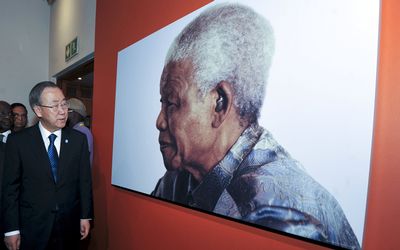
UN Secretary-General Ban Ki-moon tours Johannesburg's Nelson Mandela Centre of Memory on Monday. Picture: REUTERS
NELSON Mandela has died. The moment that the world, and we as a nation, dreaded, has arrived. We knew the moment would come. After all, he had been ailing for a number of years and was 95 years old. And yet, now that he has died, we find ourselves bereft: something of great value has been taken from us, something has been lost.
The reaction of the world to Mandela’s passing has been extraordinary and almost unprecedented in recent history. On most international news stations, there has been 24-hour coverage. There have been successive front-page headlines and articles in most newspapers as heads of state and ordinary citizens around the world pour out their emotions about this man who came from South Africa and who had not been active in national politics since 1999. So, what is it about him that has provoked this reaction? What have we lost?
The response to Mandela’s death is not caused purely by the fact that he went to prison for 27 years for his principles and for his people, nor is it that he took up the struggle for freedom for black South Africans, nor the fact that on his release he astounded the world with his utterances and actions of reconciliation and nation-building. These are all exceptional facets of the man and his character, but there have been many leaders who fought for liberation, built their country and their nation, and yet passed unmarked into the pages of history.
What distinguishes Mandela is that he had integrity of purpose and an ideal for this country and its people — his every statement and action was structured and driven by the achievement of that ideal. In the grubby arena of world politics, here was a man who brought an untainted innocence to statesmanship, and whose integrity of vision and purpose was beyond question.
In a world dominated by materialism, personal interests, power politics and greed, Mandela was that rare entity, a man who walked the talk. Politicians and celebrities recognised this and flocked to him, realising that merely by being in his presence, by simply being seen with him, they would be held in greater esteem.
Mandela represented the best of us. In the words of Bill Clinton, "Every time Mandela walks into a room we all feel a little bigger, we all want to stand up, all want to cheer, because we’d like to be him on our best day."
Each one of us knows what we should or could be, but which we, sadly, are not. All of us know when we have stayed silent when we should not have. We know we have averted our eyes when we should not have, and we know when we have acquiesced as an individual or as a nation, when we should not have. That is one of the reasons Mandela inspired and continues to inspire us, for here was a man who never acquiesced nor stayed silent in the face of injustice, a man who refused temptation.
But Mandela was not just about integrity and vision; he also possessed what few leaders can lay claim to: moral courage. In a world in which politicians pander to constituencies, pressure groups and powerful interests and are afraid to lead and to "step up", here was a man who was unafraid to lead. Here was a man who knew that integral to leadership was the making of unpopular decisions. Mandela made some of those decisions, at times angering or perplexing his supporters. He knew the power of a decision. I saw this first hand in the days of the National Peace Accord and in the lead-up to the 1994 elections.
In a country beset by violence, with the real potential for apocalyptic collapse, Mandela’s strength of vision and leadership was unwavering. It may well have been born out of pragmatism and an acknowledgement that the different groups in this country cannot survive without each other. However, it was also motivated by what was right.
In our darkest hours, after the murder of Chris Hani by white right-wingers, Mandela went on TV to appeal to the nation to say "a white man, full of prejudice and hate, came to our country, committed a deed so foul that our whole nation now teeters on the brink of disaster. But a white woman, of Afrikaner origin, risked her life so that we may know, and bring to justice, the assassin."
His appeal for calm carried us through and, shortly thereafter, the date was set for the first democratic election.
Mandela realised that a divided South Africa would be unworkable and would self-destruct. His overtures to the Inkatha Freedom Party (IFP), and to its leader, Mangosuthu Buthelezi, who was refusing to take part in the 1994 elections, reveal a man whose personal pride was never allowed to compromise the achievement of the ideal. At the last moment, the IFP agreed to participate.
It is, however, important to note that while Mandela’s leadership at that time, and subsequently, was critical in making sure that we survived crisis after crisis, he was supported by an African National Congress leadership and negotiating team that was quite remarkable. Mandela knew this, and relied heavily on their advice and support. The fact that Mandela led an exceptionally strong team is something people tend to forget. He was not alone, but lead he did.
What was different about Mandela as a leader is that he understood the power and the symbolism of action. He also never covered his human frailties, and we loved him for that. He was a leader who admitted he made mistakes and who apologised publicly. When his marriage to Winnie Madikizela-Mandela disintegrated, he asked us to respect his privacy. We were mortified and moved by his quiet and lonely dignity, so much so that all journalists heeded his plea for privacy. Mandela’s leadership style had many of the normal attributes of great leaders, including real charisma and charm.
However, Mandela was also a master of the art of political symbolism. He understood the intricacies of political messaging like few other leaders. In a country racked by insecurity, fear and prejudice, he signalled that South Africa truly belongs to all who live in it. He did this using political gestures, by crossing boundaries and speaking to the person at the back of the crowd, rather than at the front. He chose to speak to those who serve, rather than those who are served, to those who were most fearful. Mandela knew it was not just about race, it was about class, respect and human dignity. Mandela dignified a room when he walked into it and he dignified us as a nation, and the world.
Our challenge as individuals and as a nation is to ensure we preserve that dignity, and that not one of our citizens should live a life that is not accorded respect and dignity. That is our duty as individuals, and it is the duty of the government. We demean ourselves as individuals and as a nation when we have the resources, and yet cannot lift so many of our citizens from the indignity and humiliation of poverty.
Mandela equipped us with the spiritual vision and integrity to work together to ensure that all of our citizens can live a life of dignity, free from poverty and want. It is we who must deliver what he has equipped us to deliver. If we fail in this, we shall not only fail Mandela, we shall fail as a country.
Finally, I think we mourn because we know we have lost our innocence and not fulfilled Mandela’s ideal. We mourn, perhaps, because we know we have let him down and we mourn because we fear that, as with the death of a mother or father, what has been lost can never be regained. We mourn him because, despite being extraordinary, he took time to walk among us and touch us.
• Harris is with Harris Nupen Molebatsi Attorneys.



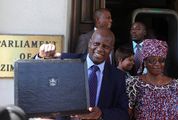
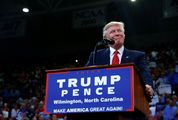
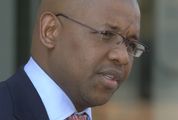





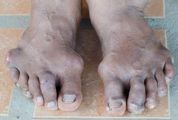
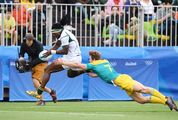
 News and views on the death, and life, of former president Nelson Mandela, with
tributes and photographs
News and views on the death, and life, of former president Nelson Mandela, with
tributes and photographs










